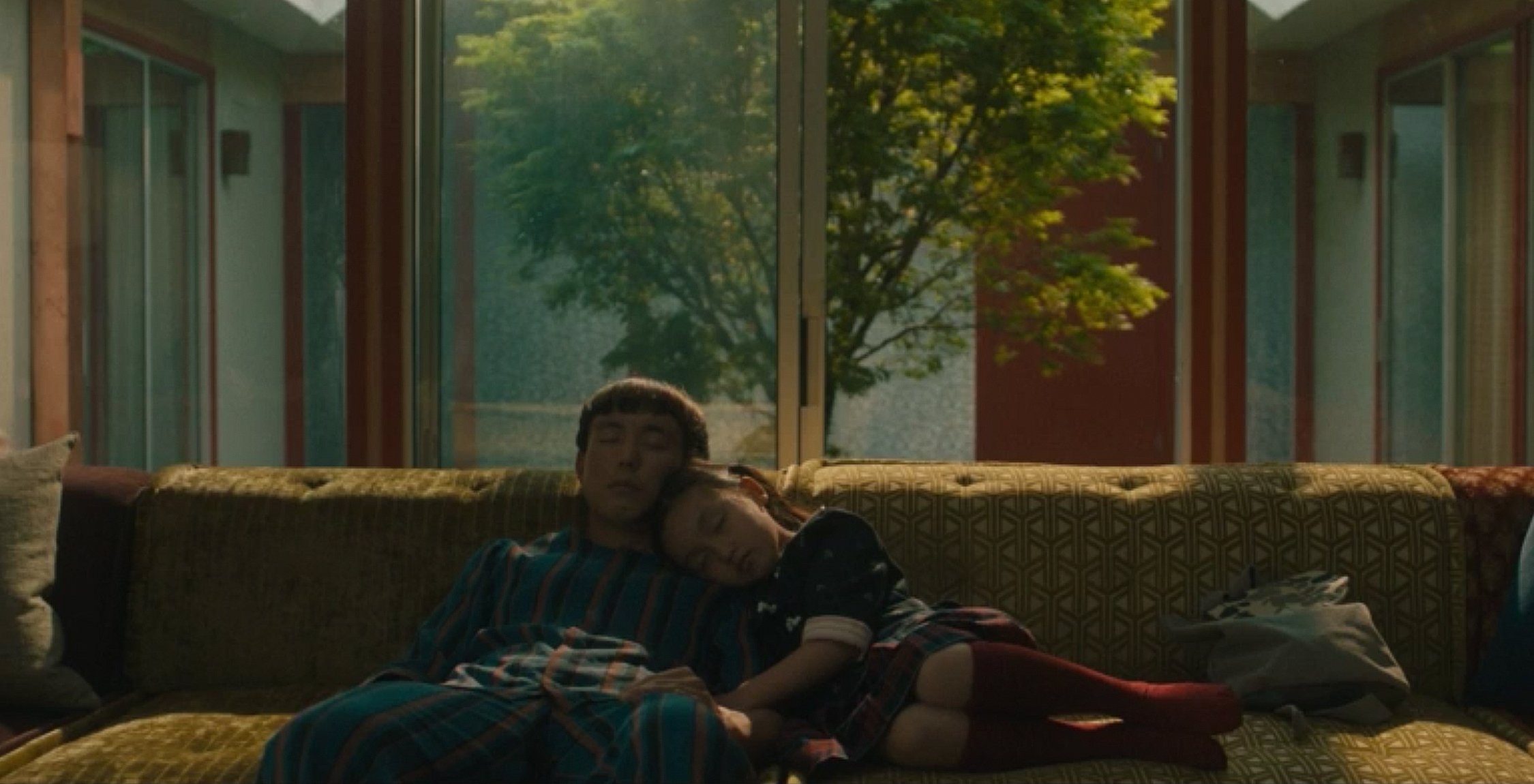Film Review: After Yang
Writer/director Kogonada envisions a world in which technology enriches our humanity, not diminishes it.
By Natalie Duerr
5.4.2022
Day in and day out, I work on an AI product at a tech company, trying to make AI understandable and maintainable for our customers. I’ve seen AI mistake a “keyboard smash” for profanity and the words “garlic bread” for international language, so it is safe to say that I don't share the common fear of AI taking over the world, at least not anytime soon. Of course, anything can become a weapon in the wrong hands, but in After Yang, writer/director Kogonada envisions a world in which technology enriches our humanity, not diminishes it.
Often, our future is depicted as undesirable or even unlivable. In real life, the news berates us about the effects of climate change while also celebrating another rich dude’s successful trip to space. Amidst an already-depressing news cycle, fiction has no problem finding new plagues that the future could bring too. We've seen robotic dog death machines hunting down humans, abject poverty and environmental ruin ignored to fund a nostalgic scavenger hunt, and even "brilliant" scientists abusing AI androids.
Kogonada concentrates on dissecting human nature instead of the technology that surrounds us, a refreshing choice for a science-fiction film. Instead of focusing on destruction, Kogonada emphasizes creation and evolution. He strikes a balance between the new and the familiar—even in a world that can create lifelike androids, the tribulations of learning to play the violin, tinkering with an old camera, or pondering what comes after death are alive and well.
The film opens with a family in the process of taking a portrait. A man, woman, and young child come into focus as the man prods "Yang" to come into the camera's view. They all momentarily look into the camera, Yang looking back at them for a moment. Then, Yang steps into the shot and makes it just in time for the shutter to click. The onscreen image briefly flips upside down—the camera has successfully captured the moment.
This opening is our introduction to the main characters: Yang (Justin H. Min), a techno-sapien who is a caretaker to Mika (Malea Emma Tjandrawidjaja), the adopted Chinese daughter of Jake (Colin Farrell) and Kyra (Jodie Turner-Smith). Jake is skeptical of Yang's usefulness, seeing him as an extravagant toy that teaches Mika "Chinese fun facts." However, when Yang breaks down, Jake rushes to try to fix him so he can go back to his absent-father tendencies. As Jake digs deeper and deeper into Yang's life, he realizes the impact that Yang has had and that his own life is quickly passing him by.
While Jake attempts to fix Yang, an engineer discovers that Yang’s memory bank allows him to record a few seconds every day (a la the 2017/2018 craze of the 1 Second Everyday app). As Jake rewatches events through Yang's point of view, Yang's version of events seemingly conflict with his. The tones of voice, aspect ratio, and angles change as he re-experiences these moments. Yang captured both the beauty of life and its unstoppable speed. As a robot, Yang is supposed to be objective, but he proves to be the exact opposite by choosing which small moments from each day to save.
Through these captured memories, Jake explores Yang's other lives: those predating Jake and those he never cared to ask about. He discovers Yang had a relationship with a young woman, Ada (Haley Lu Richardson), demonstrating that he desired a sense of belongingness and love just like anyone else. Through this conscious action of recording and storing memories depicting loved ones, Yang forces Jake to reconsider what it means to be human. While Yang's memories play onscreen, the question becomes: how do we decide what is worth remembering and how do we choose to remember it? While we do not have the restriction of capturing only a few seconds a day, we do not remember every interaction either. And our memories end up tainted and skewed—they are a perspective on a moment rather than a recording of facts. While Yang's memories are more limited, they are the truth. Yang's memories of loved ones, swirling tea, and swaying trees suggest that he appreciated the world around him much more than Jake thought.
And perhaps the most poignant example of Yang's impact is through his own metaphor of tree grafting. While assuring Mika that Jake and Kyra are her family, Yang explores how the "unnatural" has always been used to improve the natural. Yang explains the process of using tape to hold a new branch to a tree, relating Mika to the new branch being grown onto Jake and Kyra's tree. Yang never makes mention of the "unnatural" tool that makes this process possible—the piece of tape that holds the branch in place while the two grow together. Yang is that piece of tape, connecting Mika both to her Chinese culture and her new family. With Yang holding Mika and her new family together, they meld to become stronger and more resilient. And while removing that tape was always going to be tough, it is only when the tape is removed that its influence is visible.
Yang's existence as a techno-sapien extends the criteria of what it means to be human beyond being made of flesh and bone to those with the ability to love and cherish life. His existence isn't the antithesis of humanity but a call for us to be more in tune with our world. Kogonada emphasizes what we and other sentient beings share, not how we are different. When we see technology as "human," a simple device failure becomes death itself—but perhaps that proves its significance. The result is a charming and mediative film that breaks out of the narrow perspective of a hopeless future.

